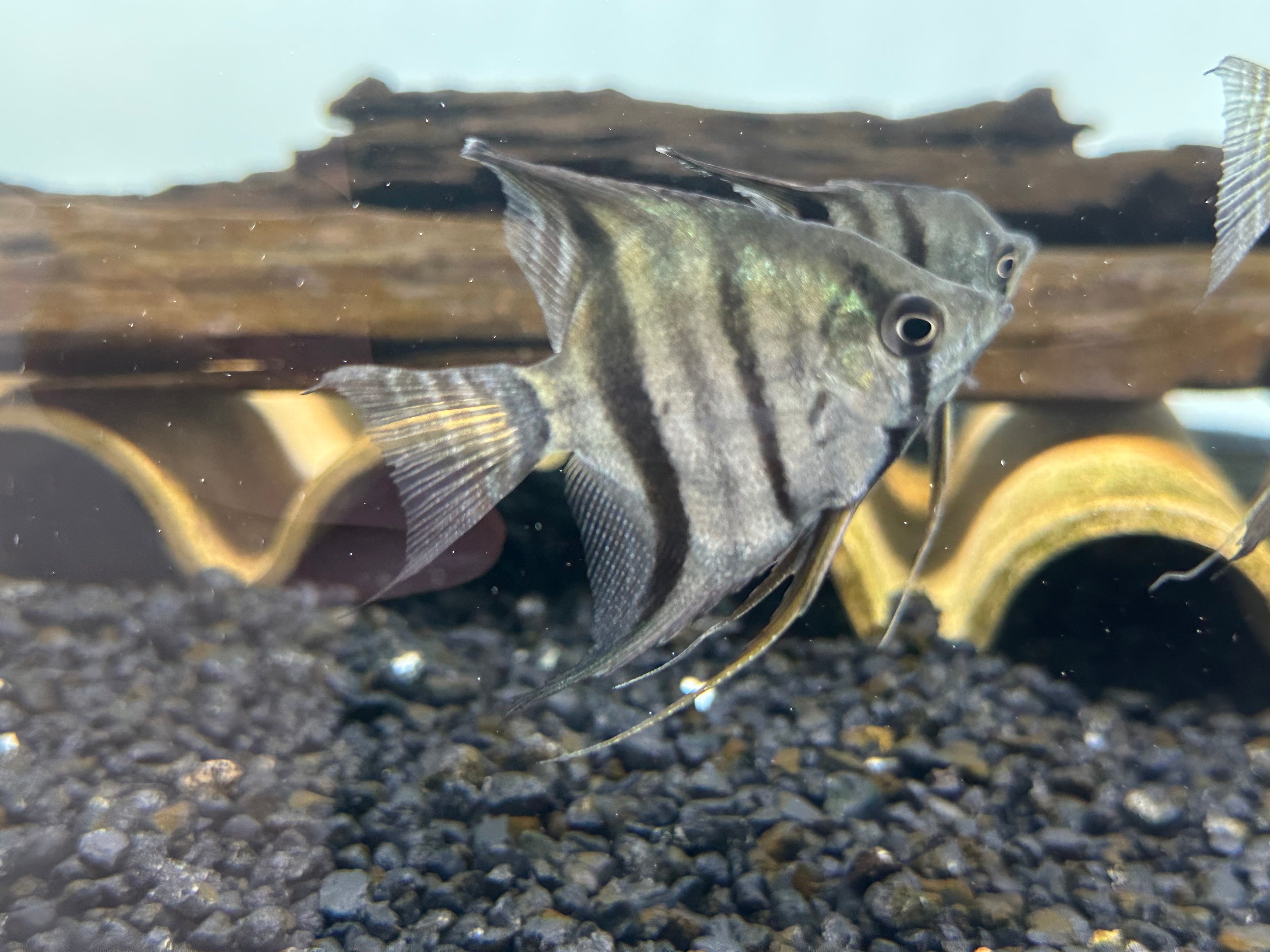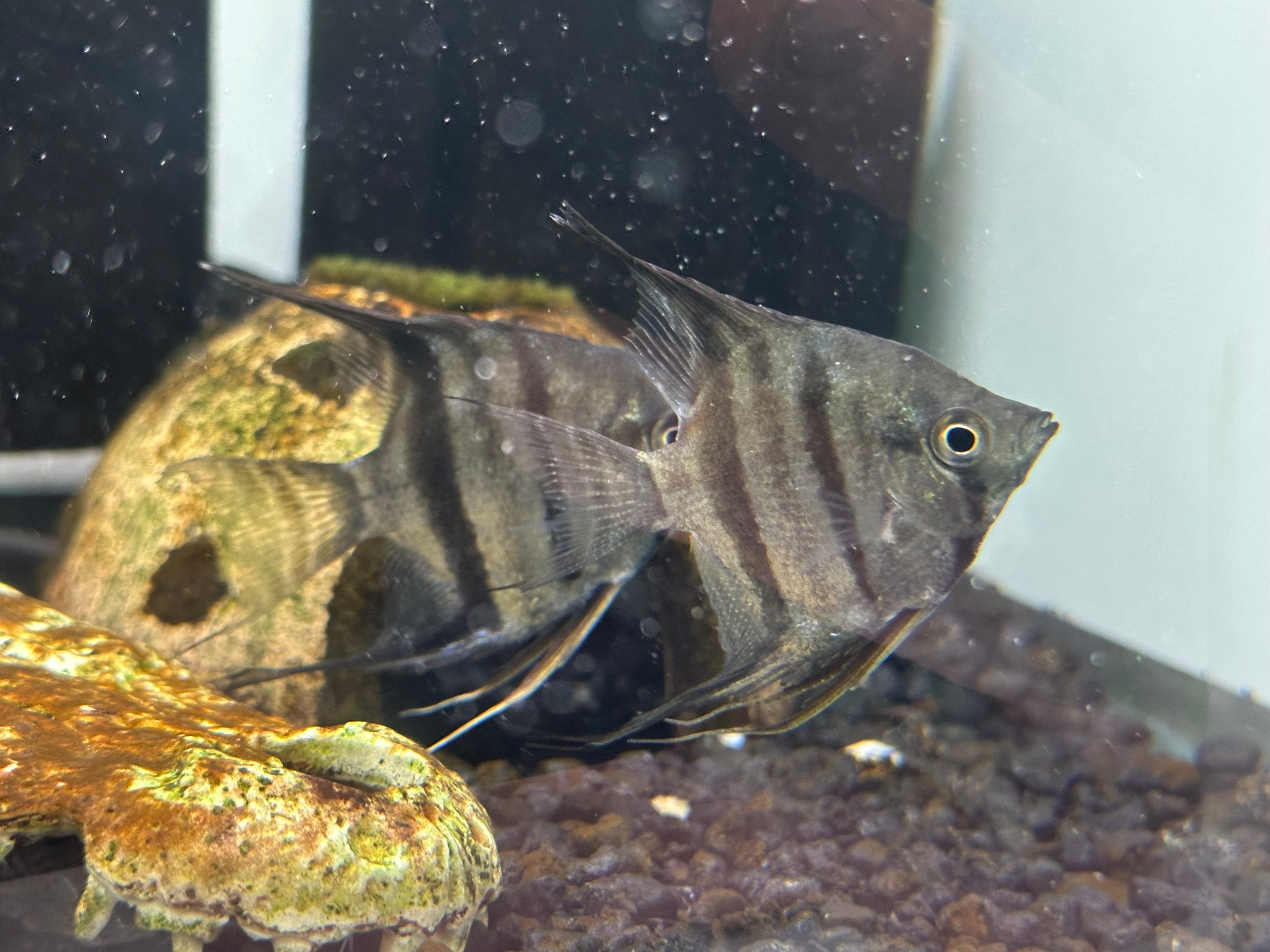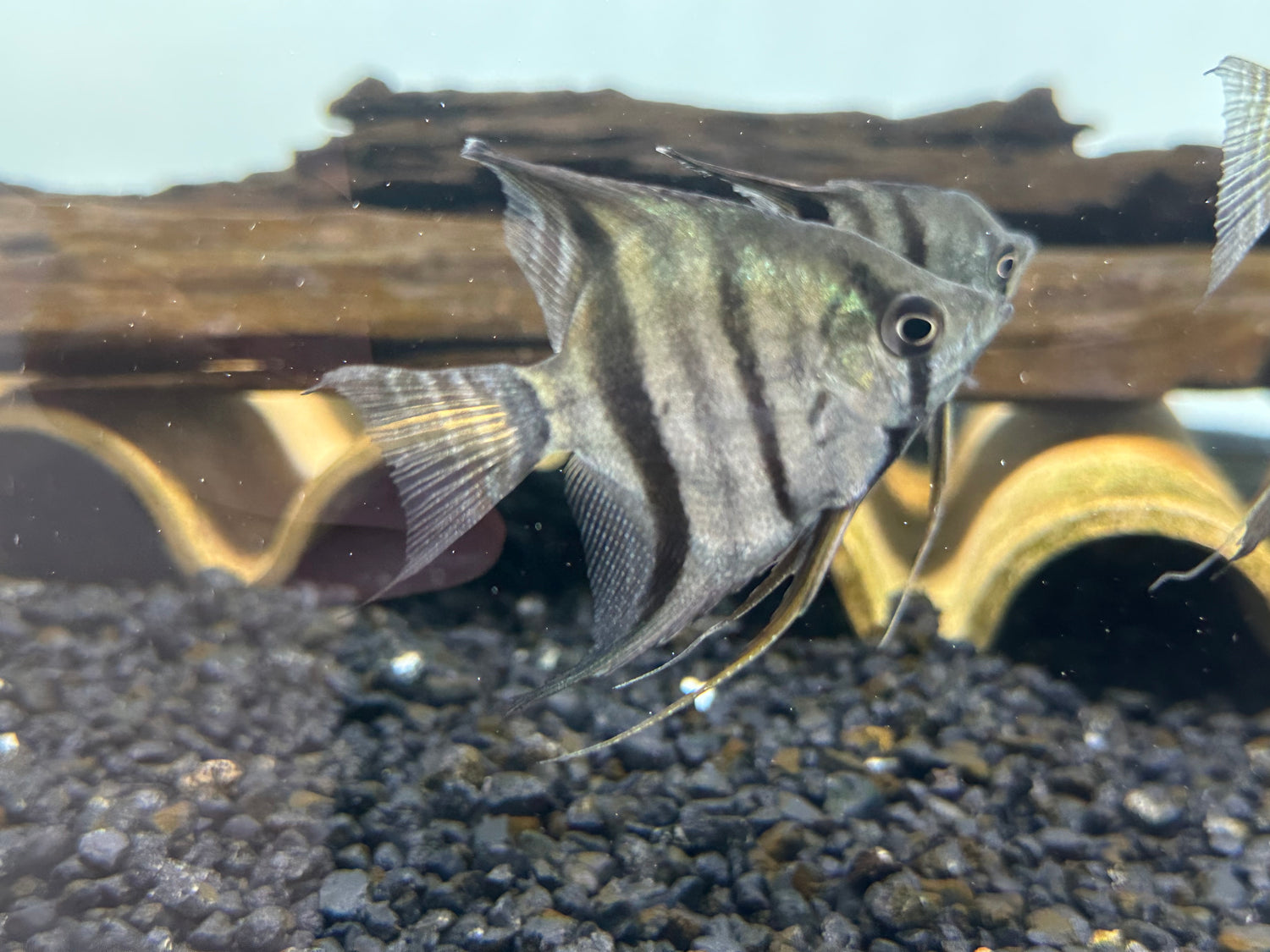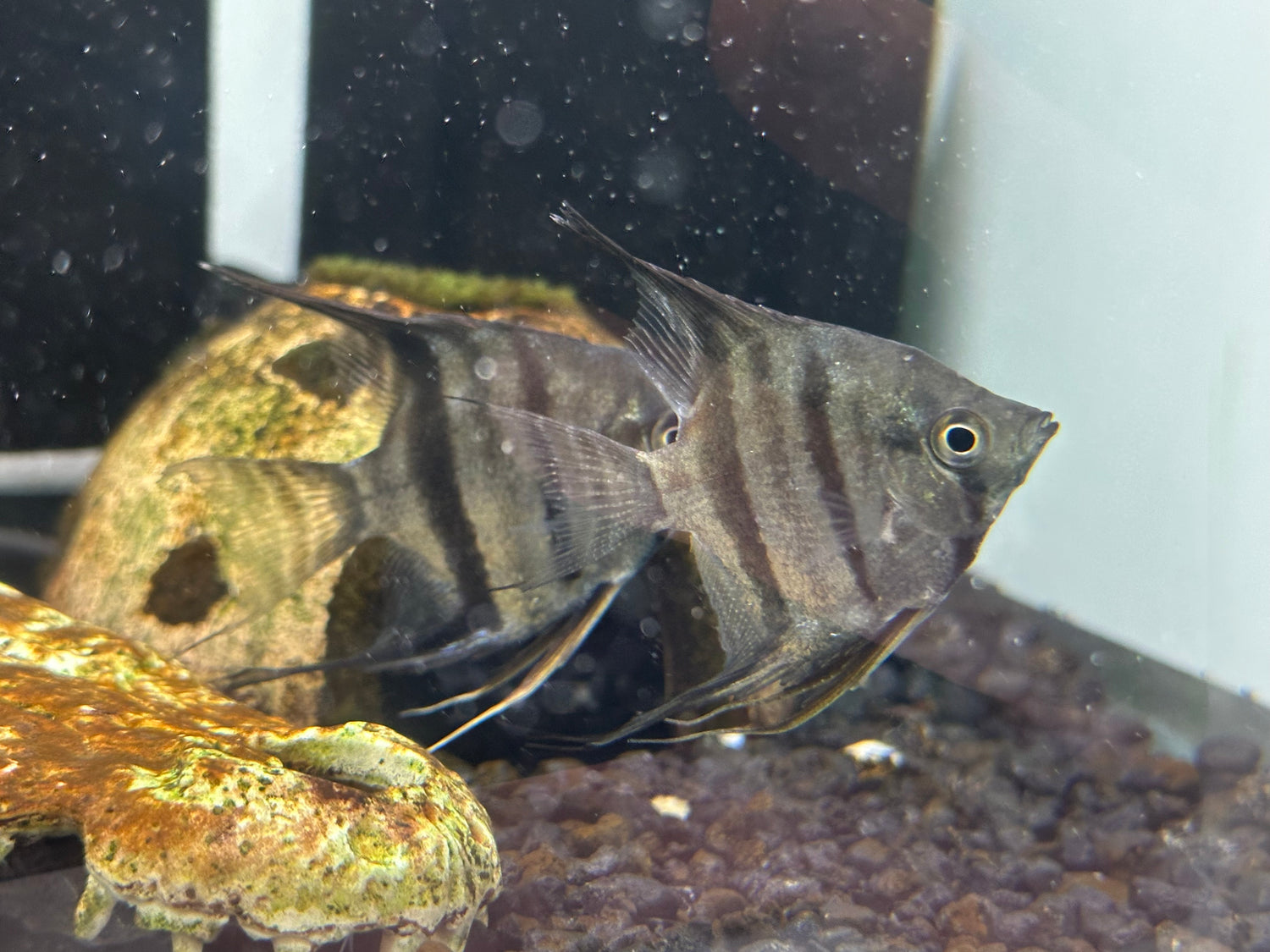Wild Leopoldi Angel (2.5”)
- Regular price
-
$30.00 - Regular price
-
- Sale price
-
$30.00
Scientific Name: Pterophyllum leopoldi
Maximum Size & Lifespan:
-
Grows to around 10–12 cm (4–5 inches) body length, with tall fins adding more height
-
Lifespan of 8–10 years in captivity with good care
Recommended Aquarium Size, Water Changes & Parameters:
-
Minimum tank size: 40 gallons for a group, 65 gallons + is preferable as they are active and tall-bodied
-
Water changes: 25–40% weekly, more frequent smaller changes are best for maintaining stability
-
Water parameters:
-
Temperature: 26–30°C (79–86°F)
-
pH: 4.5–6.5
-
Require excellent filtration but gentle flow, as they prefer calm waters
-
Tankmates:
-
Best kept in groups of 5–8 to spread aggression and establish hierarchy
-
Compatible with other peaceful softwater species such as rummynose tetras, pencilfish, Corydoras, Apistogramma, and other peaceful dwarf cichlids
-
Avoid aggressive, fin-nipping, or overly boisterous species
-
Not recommended with very small nano fish (risk of predation)
Diet:
-
Omnivorous with preference for small meaty foods
-
Diet should include:
-
High-quality flakes or small pellets
-
Frozen bloodworms and brine shrimp
-
Occasional vegetable-based foods or spirulina for balance
-
Overview:
Pterophyllum leopoldi, also called the Leopold’s Angelfish or Dwarf Angelfish, is the smallest and rarest of the three recognized angelfish species. They are more streamlined than P. scalare and P. altum, with a distinctive blotch near the dorsal insertion and a shorter, more angular body shape. Wild specimens demand very soft, acidic water and are more sensitive than domestic scalare. Their shy but hierarchical nature makes them best suited to species tanks or carefully chosen community setups.
Natural Environment:
-
Native to the Amazon River basin, particularly in Brazil and Peru
-
Found in slow-moving blackwater tributaries, creeks, and flooded forest areas
-
Habitats are shaded by dense canopy, with soft, acidic water stained by tannins and leaf litter
Breeding:
-
Breeding in captivity is rare and more difficult than with P. scalare
-
Form monogamous pairs that defend territory aggressively during spawning
-
Lay eggs on vertical surfaces such as broad leaves or flat stones
-
Eggs hatch in 2–3 days, fry become free-swimming in about a week
-
Require very soft, acidic water (pH below 6, ideally 5–5.5) for successful hatching
-
Fry can be raised on infusoria and later baby brine shrimp
Couldn't load pickup availability
-
Hurry, only 4 items left in stock!
Share



Wild Leopoldi Angel (2.5”)
- Regular price
-
$30.00 - Regular price
-
- Sale price
-
$30.00
What We Promise
-
Quality Without Compromise.
Our #1 priority is our customers, and our fish.
-
All the Stock, All the Time.
We update our online store daily with new items as they become available.
-
Seamless Shipping.
No matter how big or small your order is, we will make scheduling the arrival of your items a breeze.



